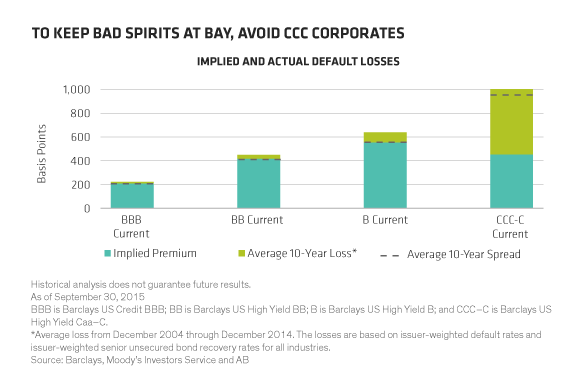-
The views expressed herein do not constitute research, investment advice or trade recommendations and do not necessarily represent the views of all AB portfolio-management teams.
To Keep Bad Spirits at Bay, Avoid CCC Corporates
Oct 27, 2015
2 min read

About the Author